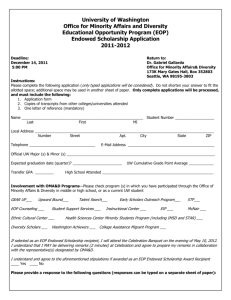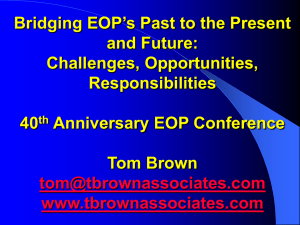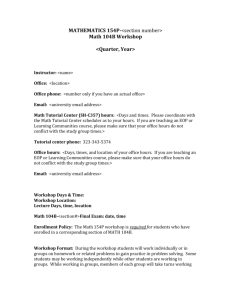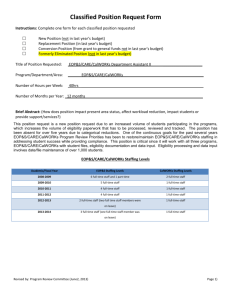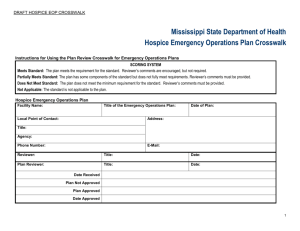"Don`t Settle for C`s" ()
advertisement
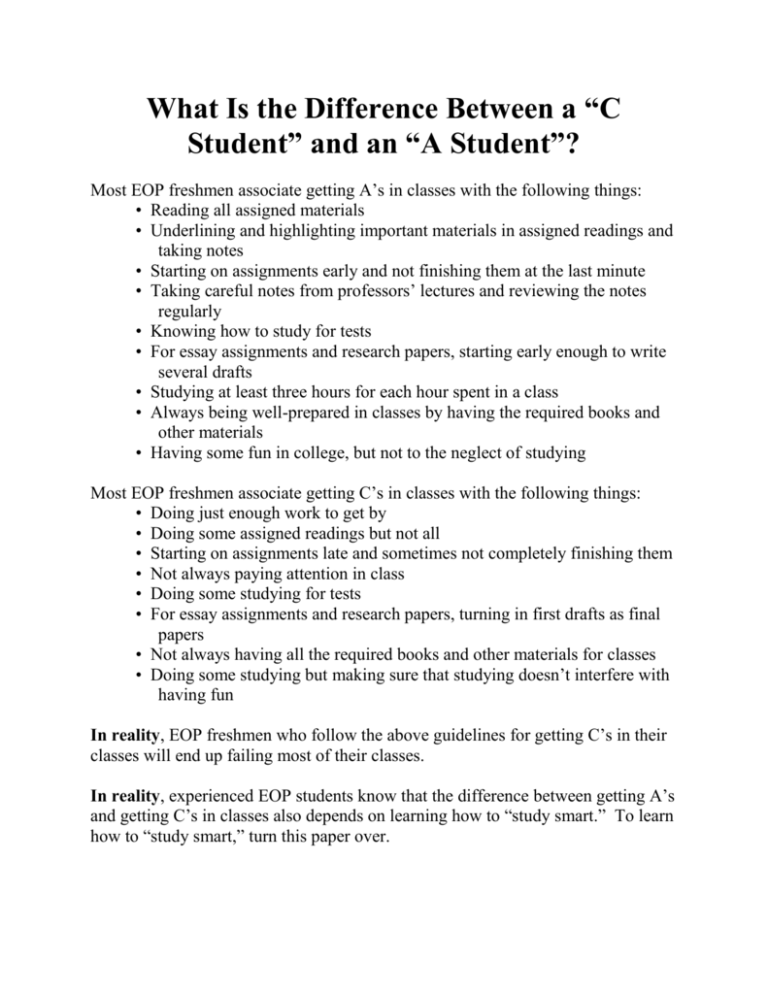
What Is the Difference Between a “C Student” and an “A Student”? Most EOP freshmen associate getting A’s in classes with the following things: • Reading all assigned materials • Underlining and highlighting important materials in assigned readings and taking notes • Starting on assignments early and not finishing them at the last minute • Taking careful notes from professors’ lectures and reviewing the notes regularly • Knowing how to study for tests • For essay assignments and research papers, starting early enough to write several drafts • Studying at least three hours for each hour spent in a class • Always being well-prepared in classes by having the required books and other materials • Having some fun in college, but not to the neglect of studying Most EOP freshmen associate getting C’s in classes with the following things: • Doing just enough work to get by • Doing some assigned readings but not all • Starting on assignments late and sometimes not completely finishing them • Not always paying attention in class • Doing some studying for tests • For essay assignments and research papers, turning in first drafts as final papers • Not always having all the required books and other materials for classes • Doing some studying but making sure that studying doesn’t interfere with having fun In reality, EOP freshmen who follow the above guidelines for getting C’s in their classes will end up failing most of their classes. In reality, experienced EOP students know that the difference between getting A’s and getting C’s in classes also depends on learning how to “study smart.” To learn how to “study smart,” turn this paper over. Learn How to “Study Smart” to Get A’s Rather Than C’s Here are some things that experienced EOP students suggest: • Set Goals: Each semester before your classes begin, set goals. What grades do you want? What do you need to do to get that grade? Remember that no experienced EOP student sets a goal of getting a C. Those who have a goal to “just get by” are freshmen who are usually gone after their first semester of college. • Go to All Your Classes — Don’t Miss Classes: One experienced EOP student said: “When I was a freshmen, I used to think I didn’t need to go to all of my classes all the time. I used to take days off like I did in high school. Now that I’m a junior, I don’t ever miss any classes. Why? When I miss a class, I have really missed more than one session, and I have a lot of work to do just to catch up with everything that I missed that day. I’ve found that it’s a lot easier to go to class all the time so that I don’t have extra work to do.” • Spend a Lot of Time on Campus and Use All Campus Resources: Unlike freshmen who hurry to leave campus right after classes, experienced EOP students spend as much time on campus as possible. Experienced EOP students use all resources on campus, such as EOP advising, writing labs, the library, tutorial services, career counseling, and personal counseling. • Learn How to Form Study Groups: For difficult classes, experienced EOP students participate in study group with fellow students rather than trying to master hard materials by themselves. • Find a Mentor on Campus: EOP Director José Luis Vargas states that the single most important factor determining whether an EOP freshmen will graduate is their ability to find a mentor on campus. Mentors can be professors, but they can also be staff members and even experienced students. Mentors are especially valuable for first-generation college students. • Visit Professors and Staff in Their Offices: Experienced EOP students get to know professors and staff and visit them in their offices. Professors and staff can provide information about job opportunities and can offer advice about career development and life enrichment.


![[school/department/work unit] EOP](http://s3.studylib.net/store/data/007019024_1-9182da65872ec3349f5f8dad4e6a3909-300x300.png)
